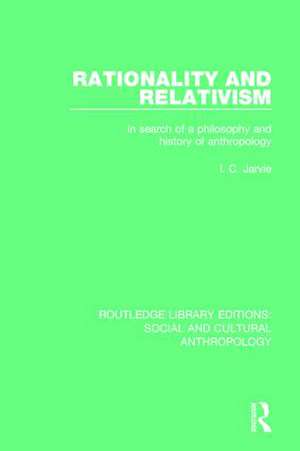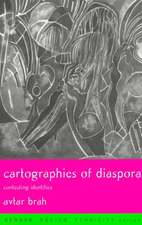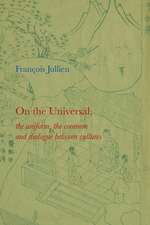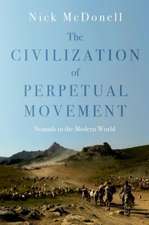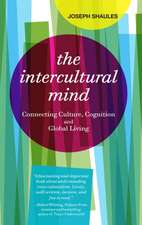Rationality and Relativism: In Search of a Philosophy and History of Anthropology: Routledge Library Editions: Social and Cultural Anthropology
Autor I.C. Jarvieen Limba Engleză Paperback – 21 mar 2017
| Toate formatele și edițiile | Preț | Express |
|---|---|---|
| Paperback (1) | 240.98 lei 6-8 săpt. | |
| Taylor & Francis – 21 mar 2017 | 240.98 lei 6-8 săpt. | |
| Hardback (1) | 625.03 lei 6-8 săpt. | |
| Taylor & Francis – 21 iul 2015 | 625.03 lei 6-8 săpt. |
Preț: 240.98 lei
Preț vechi: 293.01 lei
-18% Nou
Puncte Express: 361
Preț estimativ în valută:
46.11€ • 48.32$ • 38.12£
46.11€ • 48.32$ • 38.12£
Carte tipărită la comandă
Livrare economică 12-26 aprilie
Preluare comenzi: 021 569.72.76
Specificații
ISBN-13: 9781138928404
ISBN-10: 1138928402
Pagini: 174
Dimensiuni: 156 x 234 x 19 mm
Greutate: 0.14 kg
Ediția:1
Editura: Taylor & Francis
Colecția Routledge
Seria Routledge Library Editions: Social and Cultural Anthropology
Locul publicării:Oxford, United Kingdom
ISBN-10: 1138928402
Pagini: 174
Dimensiuni: 156 x 234 x 19 mm
Greutate: 0.14 kg
Ediția:1
Editura: Taylor & Francis
Colecția Routledge
Seria Routledge Library Editions: Social and Cultural Anthropology
Locul publicării:Oxford, United Kingdom
Public țintă
Postgraduate and UndergraduateCuprins
Prologue. Metaphysical Anthropology P.1. The Fundamental Problems of Anthropology P.2. The Methodology of Problems P.3. Sketchy Metaphysical History Part 1. Rationality 1.1. The Problem Stated 1.2. Ideas about Reason and Rationality 1.3. Reduction of Variation 1.4. Anthropology and Rationality 1.5. The Centrality of Belief and Science 1.6. Anti-cognitive Views of Magic and Religion 1.7. Digression: Rationality and Racialism 1.8. Cargo Cults as an Illustration 1.9. Weak and Strong Rationality 1.10. Further Problems with Cognitive Interpretations 1.11. Views of Science 1.12. Rationality as Rational Thinking 1.13. Rationality as Rational Belief 1.14. Science as the Supreme Embodiment of Rationality Part 2. Relativism 2.1. Relativism, Moral and Cognitive 2.2. Herskovits on Method and Practice 2.3. Relativism as a Philosophy 2.4. The Case for and Against Relativism 2.5. Relativism and Diversity Part 3. Rationality and Relativism 3.1. Relativism in its Cognitive Dimension 3.2. The Connection of Weak Absolutism with Rationality 3.3. The Connection of Weak Absolutism with Morality Epologue. Anthropology and Socio-cultural Transcendence E.1. Reflections E.2. Recollections E.3. Lessons
Descriere
Anthropology revolves round answers to problems about the nature, development and unity of mankind; problems that are both philosophical and scientific. In this book, first published in 1984, Professor Jarvie applies Popper’s philosophy of science to understanding the history and theory of anthropology. Jarvie describes how the ancient view that the aim of science and philosophy was to get at the truth is challenged in anthropology by the doctrine of cultural relativism; that is, that truth varies with the cultural framework. He shows how philosophers as various as Peter Winch, W.V.O. Quine, W.T. Jones, Nelson Goodman and Richard Rorty were influenced by this doctrine. Yet these philosophers also accept the value of rational argument. Jarvie believes that there is a contradiction between relativism and any notion of human rationality that centres around argument. Forced by the contradiction to choose between rationality and relativism, he argues strongly that logical, scientific and moral considerations favour rationality and urge repudiation of relativism. The central argument of the book is that relativism is intellectually disastrous and has fostered intellectual attitudes from which anthropology still suffers.
